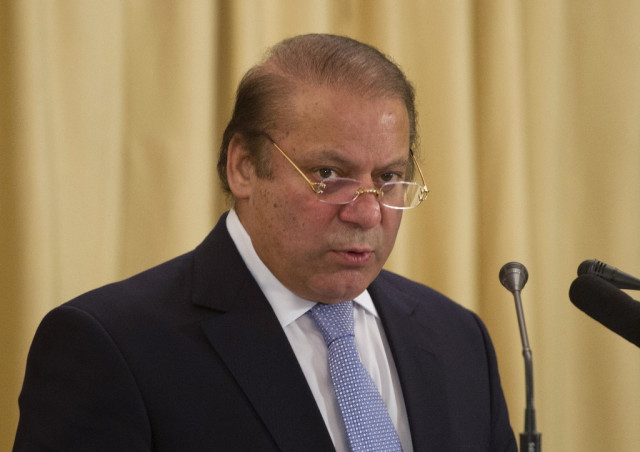Changed order
Mr Sharif will need to prove in the months ahead that he can indeed turn his optimistic vision into reality.

Mr Sharif will need to prove in the months ahead that he can indeed turn his optimistic vision into reality. PHOTO: REUTERS/FILE

This time around Sharif, after coming to power has in the first place conceded the problems he faces exceed what he had anticipated. The most acute of these appears to involve the effort to stamp out terrorism with his policy on this issue already coming under challenge. Sharif has said all parties had agreed to talk to the Taliban militants. But at the same time, he asserted that to make these talks a success it is essential the militants abide by the Constitution and the law of the land. It will, of course, not be an easy matter to persuade them to move in this direction. And Sharif himself has said that acts such as recent terrorist attacks, including those on a church in Peshawar, are unacceptable and do nothing to open up the way for dialogue.
The implication then is that Nawaz Sharif is somewhat confused over the issue which is eventually essential to solving the other problems of Pakistan, especially those linked to an economy which has failed to revive during the first three months of the Sharif government. This has disheartened many who had believed that the PML-N government would be able to bring an instant turnaround in the way things operate in the country. Sharif has accepted in the interview that it will take time to bring change.
Given his past record in office and the period he spent in exile as a result of the confrontation with his country’s powerful military, he remains remarkably optimistic about the state of relations between the civilian set-up and the Pakistan Army. He told the WSJ that all institutions in the country were abiding by government policies and he had every reason to believe this would continue. Reports from other sources are not quite so upbeat with some commentators suggesting that the military does not approve of Sharif’s policies either on militancy or on relations with India.
As far as the delicate question of India goes, Nawaz Sharif has said he is determined to bring about an improvement in ties and will do all he can for this purpose. He has also said that thorny issues such as that of Kashmir would be taken to the UN and also discussed at the bilateral level. Pakistan’s other main foreign policy concern is, of course, that of its relations with the US. These have come under strain in recent months, most noticeably over the drone strikes, which Sharif has said he is determined to stop. Whether he can achieve this is something time will tell. However, the prime minister has emphasised the matter has already been discussed with senior US officials and he expects a positive outcome from this.
There are, of course, many other challenges ahead of Mr Sharif. The energy crisis is just one of these. So far into his term, the prime minister appears to have adopted a more careful approach than had been the case in the past, indicating he is eager to prove himself to be a true statesman. It is as yet far too early to say if this will pay off or if the problems will mount. There had already been criticism that the government has reached a state of paralysis. Mr Sharif will need to prove in the months ahead that this is not the case and that he can indeed turn his optimistic vision into reality, changing the way things have traditionally worked in the country and bringing to it the peace it urgently requires.
Published in The Express Tribune, September 30th, 2013.
Like Opinion & Editorial on Facebook, follow @ETOpEd on Twitter to receive all updates on all our daily pieces.














COMMENTS
Comments are moderated and generally will be posted if they are on-topic and not abusive.
For more information, please see our Comments FAQ